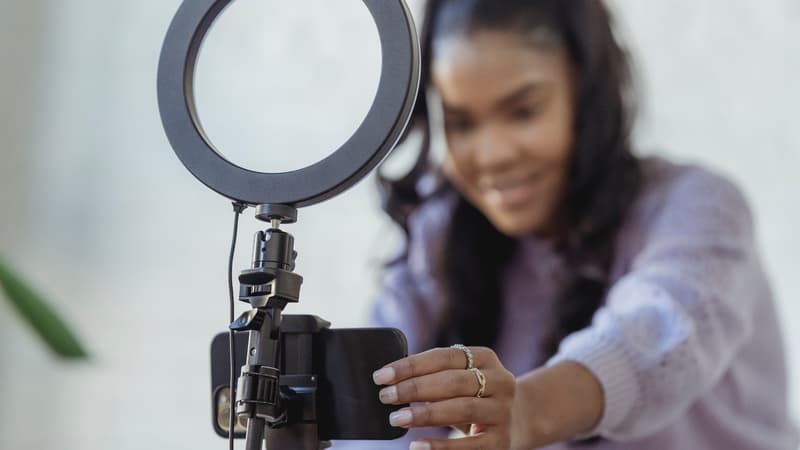How can you end up signing a column you haven’t read? The question has been agitating social networks for several days, after the publication, in the Sunday newspaper, a forum on the regulation of the world of influence, from which many signatories later disassociated themselves. The reasons given are various. Some say they never consented to their name appearing and others, like Squeezie, admit they consented without reading it.
France’s first YouTuber explained in a TikTok posted on Tuesday what happened to him: “How could I be associated with this thing without even opening or consulting it? Well, because my agent sent it to me and I trust him.”
He explains that his agent is part of Umicc, a federation of agencies and influencers at the initiative of the text published in the JDD. The Umicc has participated in recent months in the consultations carried out by the Ministry of Economy and deputies on the supervision of the sector of influence.
Contact and advice
This trust is at the heart of the relationship between influencers and their agents. The first agencies dedicated to commercial influence emerged in the mid to late 2010s.
The influencer agent is primarily responsible for connecting brands with creators and charting the outlines of partnerships. He can also have an advisory role with the creator on the business strategy to adopt.
The agents take, as in the cinema for example, a commission for the contracts signed by influencers. Therefore, it is necessary to have a minimum of success for it to be profitable to call an agent. Agencies can also occasionally collaborate with creators to connect them with brands. Today, “only a minority” of creators is “accompanied by agencies,” Umicc underlined in a press release this Friday.
An agent to “extract” from certain constraints
As part of the Paye ton influencer collective, Amélie Deloche raises awareness of influencers on Instagram about issues around global warming and “responsible” influencer, which in her opinion includes both legal and ecological issues.
He tells BFMTV.com that “having an agent usually allows influencers to get out of these limitations and delegate the legal aspect, for example.” With the company Post influenced by him, he supports agencies in the development of ethical and ecological practices.
Amélie Deloche also believes that influencers “do not learn enough” on their part about ecological and consumer protection aspects, especially before agreeing to a partnership. She cites the recent example of an influencer who did sponsored stories for the Bayer company at the agricultural fair in early March. Asked by the Vakita outlet, she had assured that she regretted this association and that she had not inquired upstream about who Bayer was, a giant agrochemicals and pesticide manufacturer.
Regarding their legal obligations, the sociologist specialized in the “putting to work” of influencers Joseph Godefroy also points out a “significant ignorance” on their part of the legal framework that applies to them.
A profession presented as a passion
How to explain that people who can reach at least thousands of people ask so little before making an announcement or, in the most recent case, signing up for a platform in a weekly that is highly scrutinized by the political-media universe? For Joseph Godefroy, the answer lies in the way they represent their activity.
He observed during his work that many times, when influencers mention his achievements on social networks, they evoke “the hobbies, the passion”. This is a very widespread discourse in the influence sector, which does not depend on the number of subscribers and which does not help to professionalize the sector, according to the researcher from the University of Nantes.
A bill to professionalize the sector
Amélie Deloche thus explains that “the lack of global supervision means that there have not been clear practices to professionalize the sector” and that “self-regulation is not enough”. According to this observer from the world of influences, the bill examined this week in the National Assembly, which aims to regulate the sector more strictly, should change things.
For creators who aren’t represented by an agent, “it’s hard to tap into this socially unevenly distributed legal knowledge,” Joseph Godefroy tells BFMTV.com: “not everyone has a lawyer around them.”
To guide them, the Ministry of Economy has also put online a “good conduct guide” aimed at “influencers and content creators”. He also wants to define, through the bill examined this week, a “co-responsibility” of the agencies when “they lead the influencer to harm a third party in the execution of the contract that they have been offered,” according to the press dossier. posted on friday.
Source: BFM TV


